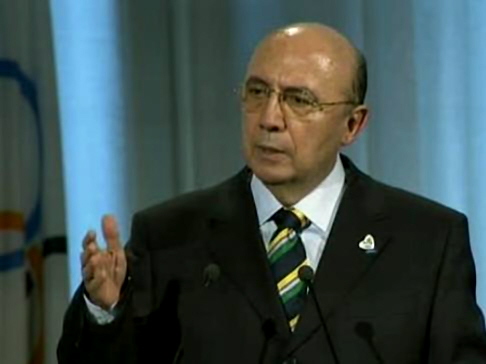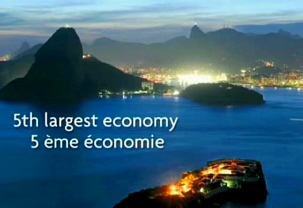
|
Henrique Meirelles Rio 2016 Final Pitch to the International Olympic Committee delivered 2 October 2009, Copenhagen, Denmark
Mr. President, distinguished Members of the IOC, I am Henrique Meirelles, the governor of the Central Bank of Brazil. It's a great honor to be able to be with you again. In Lausanne, I was privileged to be able to detail the strength of the Brazilian economy, even in the face of the global crisis that has hit some nations so very hard. Today, I am delighted to confirm that the Brazilian economy is even stronger -- and ready for the games. Since my presentation in June, Brazil has demonstrated continued positive results. We have seen growth of almost 8 percent in the second quarter. We have recorded our lowest-ever unemployment rate for the month of July, and the highest-ever number of new jobs created in the month of August -- a total of 242,000. This ongoing economic strength underpins our long-term aims, our investments, and also our fund for national development. This 240 billion dollar fund is already being spent in the supporting of capital programs of Rio 2016. It underpins Rio's non-OCOG budget1 which as been agreed [upon] in complete partnership with all three levels of government -- a budget that is complete, transparent, and totally guaranteed. Major companies are also keen to invest in support [of] the Olympic movement, as seen by the recent Olympic television deal signed by our broadcasters -- making Brazil the third largest market for the IOC, a market that's growing, taking our GDP close to 2 trillion dollars.
Ours is the 10th largest economy in the world, and the World Bank predicts that it -- it will be 5th by 2016. We are already the 5th largest advertising market, growing at 13 percent per year. And, thanks to the recent discovery of the world's largest new oil field, we now have one of the planet's biggest oil reserves. As a nation, we know that we can deliver. We have provided guarantees that can give you certainty. Our economic strength can give you confidence to bring the games to Rio in 2016. 1The non-OCOG (Organizing Committee for the Olympic Games) budget accounts for investments by the public and private sectors to build new sports venues and infrastructure works, including airport expansion, transport improvements and other work to be undertaken by the three levels of government. The non-OCOG budget will provide the main long-term legacies of the Olympic Games. (Source: http://www.rio2016.org.br)
See also:
All city candidates and elction outcomes for 2015 Olympic
Games
Page Updated: 1/19/24 U.S. Copyright Status: Text, Audio, Images (Screen shots) = Uncertain. |
|
© Copyright 2001-Present. |


